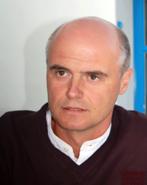 |
||
Home > TERATEC FORUM > Workshop 4
Big data, multiscale and materials
The Discrete-Continuum Model: An important breakthrough to simulate the mechanical properties of crystalline materials
Benoit DEVINCRE, ONERA
Plastic deformation of crystalline materials is the result of the collective movement of dislocations, in response of their mutual interactions, external applied loading and interactions with boundaries such as free surfaces, interfaces or grain boundaries. The dislocation microstructures emerging from such dynamics are intrinsically heterogeneous and the way they affect the mechanical properties is a puzzling problem.
A reliable tool to simulate crystal plasticity at the mesoscopic scale is the Discrete-Continuum Model (DCM). The DCM is based on a coupling between 3D Dislocation Dynamics (DD) simulations and Finite Element (FE) method. In particular, the DD simulation code is in charge of the dislocation microstructure evolution and dislocation short-range interactions, while long-range internal stress, displacement field, and boundary conditions (including surface and interface effects) are handled by the FE simulation code.
The DCM has been significantly improved during the last two years. It is now possible to handle problems with very large number of dislocations (the performances of the DCM algorithm overcome classical multi-poles algorithm gain with large number of segments), to use non-regular FE meshes, to precisely take into account the influence of finite or periodic boundary conditions and to consider isotropic and anisotropic elasticity.
 |
Dr. Benoit Devincre is senior scientist at CNRS. He is one of the pioneers of three-dimensional (3D) Dislocation Dynamics simulations and is an expert in crystal plasticity. In collaboration with the ONERA mechanical department, he developed a unified model coupling a 3D discrete dislocation dynamics (DDD) simulation with finite element (FE) simulations. The so-called Discrete-Continuous Model (DCM) aims at predicting plastic deformation in small volumes with complex boundary conditions including static surfaces and interfaces. |